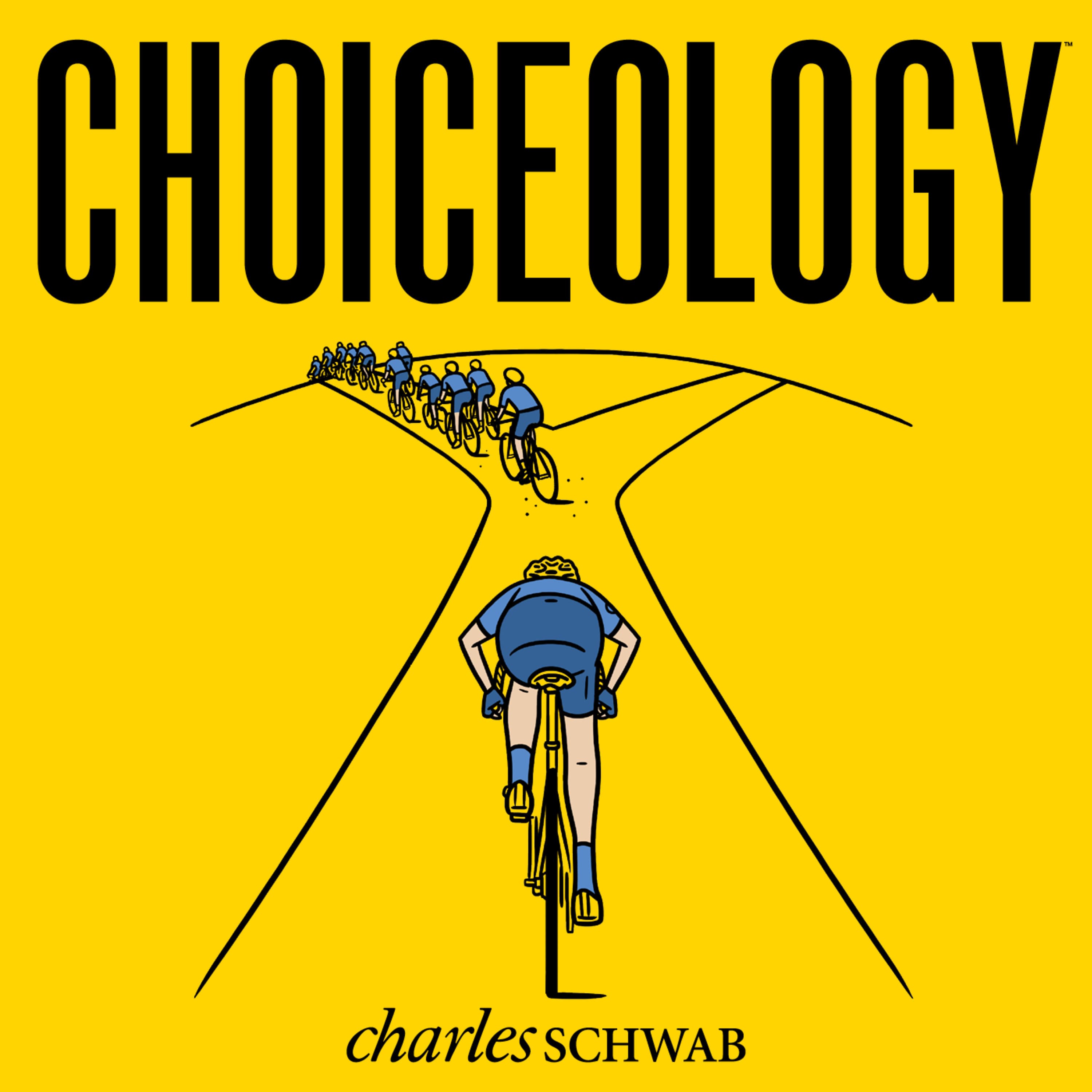Everybody's Doing It: With Guests Tyler Hamilton & Todd Rogers
You are, in fact, a social animal. You take many visible and invisible cues on how to behave from the people around you—family, co-workers, friends, social media, even the folks in the elevator or on the bus. So your decisions and behaviors aren't always as independent as you might think.
In this episode of Choiceology with Katy Milkman, we look at a phenomenon that may have you running with the crowd, even when it's not in your best interest.
- The episode begins with an experiment. A benign but peculiar behavior appears during an otherwise normal orchestra rehearsal. It starts with a few members but spreads rapidly through the orchestra. What's causing this behavior, and why is it so contagious?
- From there we move to a much more consequential behavior in the world of professional cycling. We examine a high-stakes decision by cyclist Tyler Hamilton in his quest for Tour de France glory and Olympic gold. It's a story of peer pressure, deep secrets, subterfuge and, ultimately, redemption.
- Then behavioral scientist Todd Rogers of the Harvard Kennedy School explores the myriad ways we're influenced by those around us. He speaks with Katy about some of the ways that businesses and institutions can harness our social nature for the greater good.
- Finally, Katy Milkman looks back at some of the early research on how individuals can be manipulated by social groups. She offers tips to help you avoid falling victim to mob mentality.
Choiceology is an original podcast from Charles Schwab.
If you enjoy the show, please leave a rating or review on Apple Podcasts.
Learn more about behavioral finance.
Explore more topics
All expressions of opinion are subject to change without notice in reaction to shifting market conditions.
The comments, views, and opinions expressed in the presentation are those of the speakers and do not necessarily represent the views of Charles Schwab.
Data contained herein from third-party providers is obtained from what are considered reliable sources. However, its accuracy, completeness or reliability cannot be guaranteed.
Apple Podcasts and the Apple logo are trademarks of Apple Inc., registered in the U.S. and other countries.
Google Podcasts and the Google Podcasts logo are trademarks of Google LLC.
Spotify and the Spotify logo are registered trademarks of Spotify AB.



